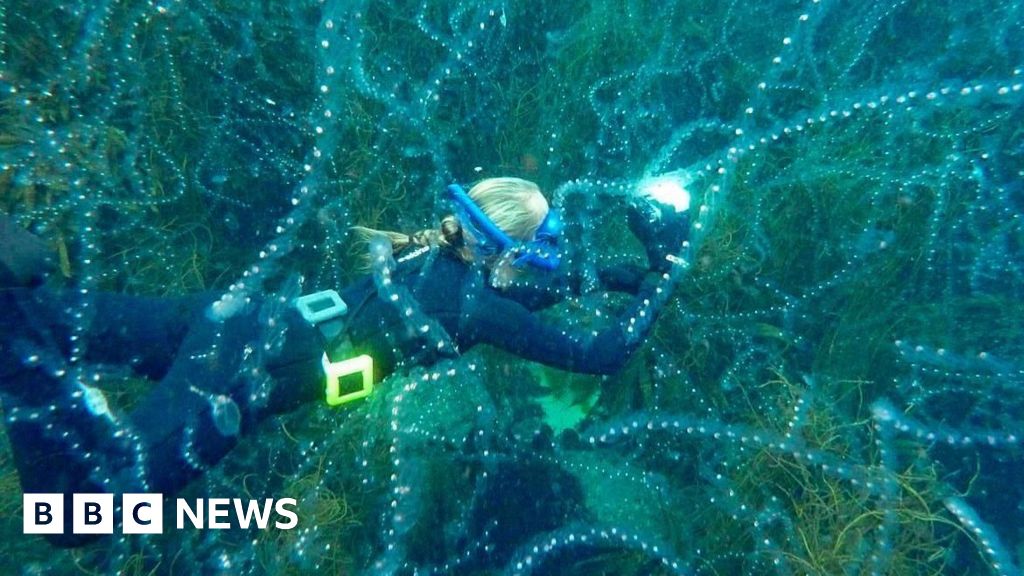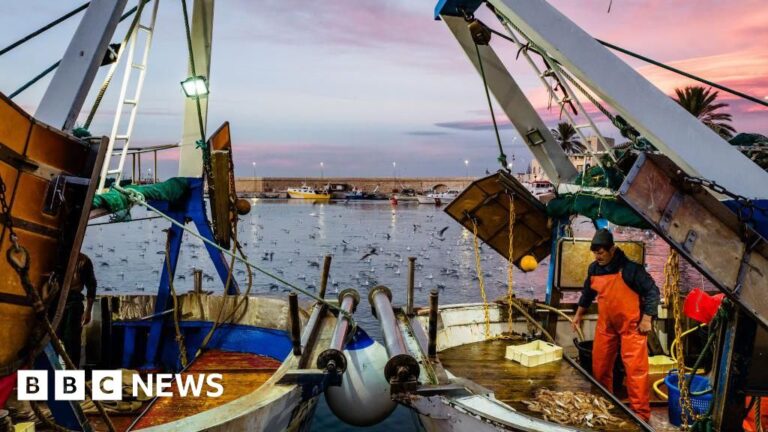The UK’s seas have had their warmest start to the year since records began, helping to drive some dramatic changes in marine life and for its fishing communities. The average surface temperature of UK waters in the seven months to the end of July was more than 0.2C higher than any year since 1980.
Scientists and amateur naturalists have observed a remarkable range of species not usually widespread in UK waters, including octopus, bluefin tuna and mauve stinger jellyfish. The abundance of these creatures can be affected by natural cycles and fishing practices, but many researchers point to the warming seas as a crucial part of their rise.
Some exceptional sea temperatures have also been detected by measurement buoys off the UK coast. The record 2025 warmth comes after very high sea temperatures in 2023 and 2024. The Met Office says its data from the end of June 2024 to now is provisional and will be finalised in the coming months.
The world’s oceans have taken up about 90% of the Earth’s excess heat from humanity’s emissions of planet-warming gases like carbon dioxide. Hotter seas are also less able to absorb carbon dioxide from the atmosphere, which could mean that our planet heats up more quickly.
The sea warmth is already posing challenges to fishing communities. Ben Cooper has been a fisherman in Whitstable on the north Kent coast since 1997, and relies heavily on the common whelk, a type of sea snail. But the whelk is a cold-water species, and a marine heatwave in 2022 triggered a mass die-off of these snails in the Thames Estuary.
Before the latest heatwave, the whelks had started to recover but he said the losses had forced him to scale back his business. The precise distribution of marine species varies from year to year, but researchers expect the UK’s marine life to keep changing as humans continue to heat up the Earth.
The fishers might in the long term have to change the species that they target and that they catch, and we as consumers might have to change the species that we eat.
Source link




